Reconstruction
President Andrew Johnson’s limited Presidential Reconstruction prioritized reconciliation between the North and South. Its effect was to restore the status quo regarding old wealth and power in the South and the political oppression of Black people.
After North Carolina’s all white Constitutional Convention in October 1865, the new legislature passed Black Codes that imposed an inferior legal status on newly freed Black people, as well as those who were free people of color before the war. During the same week, Black political activists held their own Freedmen’s Convention to protest their exclusion from the convention underway across the street.
Frustrated by the South’s rejection of the 14th Amendment and its return to the pre-war status quo, so-called “Radical” congressmen within the Republican Party fought to overcome Johnson’s vetoes in order to pass sweeping progressive Reconstruction legislation. The Reconstruction Acts of 1867 sought to force the former rebel states to ratify the Fourteenth Amendment and guarantee voting rights for Black people in order to rejoin the Union. As a result, North Carolina held another Constitutional Convention in January of 1868 which included 15 Black members among the 120 delegates. The new state constitution provided for universal male suffrage, and North Carolina ratified the 14th Amendment in July of the same year. With the ratification of the 15th Amendment in 1870, Black men gained the vote nationwide, leading to the election of North Carolina’s first Black members of Congress beginning in 1872.
An influx of white educators, preachers, businessmen, and politicians from the North angered native Southern Democrats, who launched a smear campaign, against them and labeled them “carpetbaggers.” They labeled native southern whites who sided with Republican efforts as “scalawags.” The smear campaign was an effort to turn voters against the Republican party and undermine Reconstruction endeavors. White supremacists and the newly formed Ku Klux Klan terrorized Black people. Prompted by the public outcry after lynchings and other violence, Governor William Holden took action. In 1870, his efforts to suppress KKK terrorism angered many white North Carolinians and helped turn the tide against Republicans and return Democrats to power. Meanwhile, the state’s residents were struggling to rebuild their lives and livelihoods after the war. At the same time, an economic downturn, consolidation of land by wealthy landowners, and the systems of sharecropping and tenant farming all increased the wealth gap between rich and poor.
Featured Story
A Letter to Jefferson Davis from George C. Beasley, April 21, 1862
Transcribed by Cheri Todd Molter Original Transcription: Camp of Starr’s Light Battery Greenville NC Apr 21st 1862 Hon J. Davis Pres C.S. I see by a...
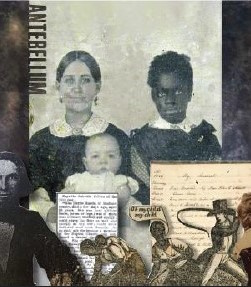
Antebellum
Before the Civil War, the region’s geography, population, economics, and laws shaped the diverse lives of North Carolinians. Enslaved and free Black people rebelled against the institution of enslavement through violent revolt...
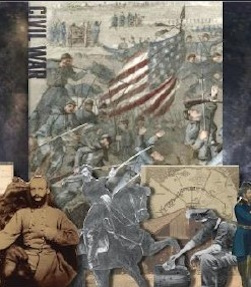
The Civil War
After the election of Republican candidate Abraham Lincoln in November 1860, South Carolina and six other states seceded before he took office, but President Buchanan did not initiate hostilities...
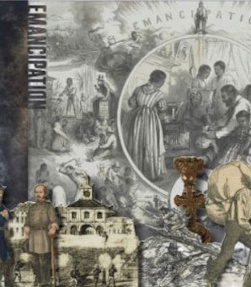
Emancipation
In May 1861, General Benjamin F. Butler gave semi-protected status and partial freedom to enslaved people who escaped to Union lines from Confederate territory, considering them essentially “contraband of...
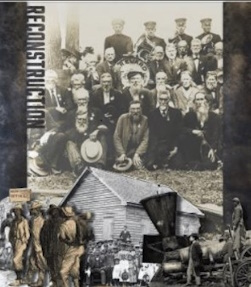
Reconstruction
President Andrew Johnson’s limited Presidential Reconstruction prioritized reconciliation between the North and South. Its effect was to restore the status quo regarding old wealth and power in the South and the political oppression of...
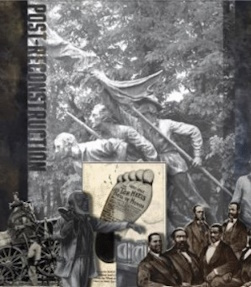
Post-Reconstruction
In the 1880s, struggling farmers united in the Farmers’ Alliance, a national movement that sought agricultural reform and railroad oversight, and formed groups throughout the South...
